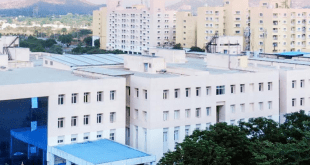Empowered by microloans, a woman is scripting a new story of Atmanirbhar Bharat in suburbs of Ahmedabad
Ahmedabad, March 18: In the bylanes of Amraviadi, a suburb of Ahmedabad, Meenakshi Rathore is a testament to the grassroots impact of Atmanirbhar Bharat (Self-reliant India). While her venture may not qualify as a startup, Meenakshi’s contribution is as crucial as any. Her story reflects the journeys of over 415 million Indians who lifted themselves out of poverty between 2005-06 and 2019-21.
Meenakshi’s journey with financial empowerment began in June 2021. A small loan of Rs 60,000 from Light, a microfinance organization, allowed her to launch her saree fall stitching business. From a one-woman operation, Meenakshi’s venture, aptly named “Saree Falls,” has blossomed into a local employer. Today, she empowers five other women, enabling them to contribute to their households.
Meenakshi’s story embodies the growing trend of women entering India’s workforce. “Life wasn’t easy,” she reflects. “I learned everything through trial and error. That initial loan from Light was a game-changer. I bought a used sewing machine and though the work was limited, the income, however small, brought a sense of financial independence.” Fueled by this newfound self-sufficiency, Meenakshi renewed her loan in July 2022 for Rs 85,000. This investment allowed her to purchase six more machines, creating additional employment opportunities.
Balancing motherhood and entrepreneurship, Meenakshi showcases remarkable determination. Confidently, she explains, “My family, particularly my husband, has been a pillar of support. From his early backing of the loans to his current contributions of stitching alongside me during his free time, his help has been invaluable.” Meenakshi emphasizes the unique fulfilment that comes from being an employer, stating, “There’s a different kind of satisfaction and responsibility when you provide for others’ livelihoods.”
Meenakshi praises microloans as a lifeline for those, like herself, facing barriers to traditional credit. “The Joint Liability Group (JLG) system behind these loans is brilliant,” she explains. “It provides not just financial support, but also a network of encouragement. The JLG guides us towards self-employment opportunities that can be managed from home, making it easier to balance family care and household duties.” Meenakshi concludes by highlighting how microloans have significantly improved her income, allowing her to envision a brighter future.
Across India, countless stories echo Meenakshi’s, empowered by the burgeoning microfinance sector. In Financial Year 2022-23, this industry provided a staggering Rs 3.48 trillion (around $43.5 billion) in loans, impacting an estimated 660 million individuals. Notably, women entrepreneurs saw a significant surge, with 8 million joining the ranks in FY23, bringing the total number of female microfinance clients to a remarkable 66.4 million across the nation.
Light Microfinance: It is a Non-Banking Finance Company registered with the Reserve Bank Of India. Headquartered in Ahmedabad, Gujarat, Light Microfinance provides micro and meso finance products and services with gender and poverty-focused programs, targeting rural and peri-urban areas, with a specific focus on poor women. The company operates in Gujarat, Rajasthan and Madhya Pradesh and is one of the fastest-growing microfinance companies in India today.
MFIN (Microfinance Industry Network): MFIN is a premier industry association comprising 56 NBFC-MFIs and 44 Associates including Banks, Small Finance Banks (SFBs) and NBFCs. By virtue of bringing all microfinance entities under one common umbrella, MFIN acts as a bridge between them and the regulators to build a dialogue for greater transparency, better policy frameworks and stronger client protection standards for responsible lending, thus enabling the microfinance industry to partake in meeting the larger financial inclusion goals.
 Newspatrolling.com News cum Content Syndication Portal Online
Newspatrolling.com News cum Content Syndication Portal Online






